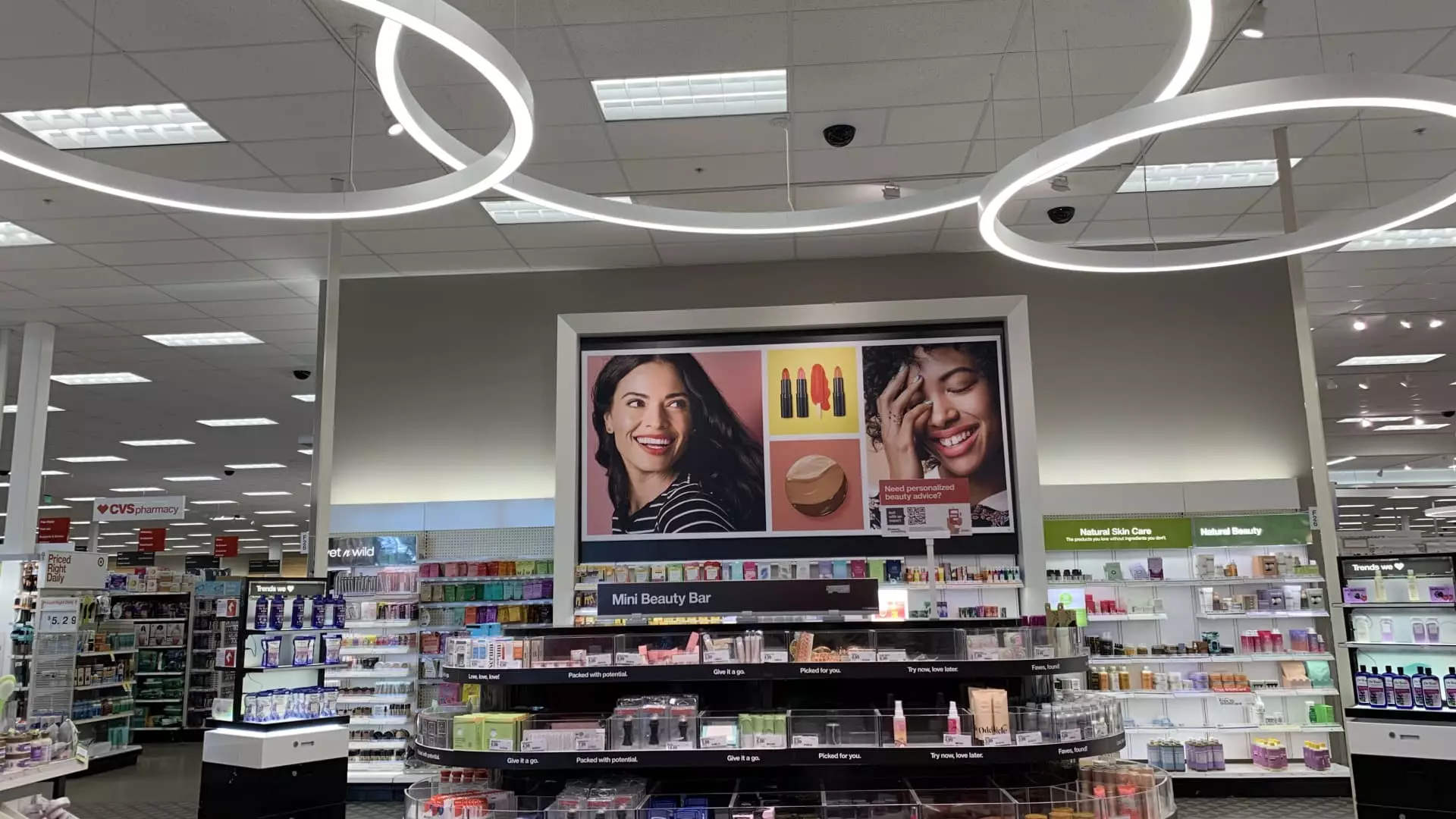In an era where retail giants incessantly scramble for innovative ways to attract customers, the partnership between Target and Ulta Beauty was heralded as a modern marvel. The integration of Ulta beauty shops within hundreds of Target stores was supposed to symbolize a forward-thinking approach—merging the allure of high-end beauty with the accessibility of mass retail. Yet, beneath this glitzy veneer lies the sobering reality: Ulta’s departure signifies not just a failed experiment but a fundamental flaw in Target’s understanding of its core strengths. This alliance, touted as a key growth driver, actually concealed Target’s deeper issues—namely, operational inefficiencies, declining customer engagement, and an over-reliance on fleeting trends rather than sustainable value propositions.
Rather than fostering genuine loyalty, the Ulta partnership arguably distracted Target executives from confronting the stagnation in their traditional business model. The notion that a beauty shop-in-shop could revive flagging sales overlooked the critical need for a cohesive, seamless shopping experience rather than a patchwork of branded add-ons. This failure highlights a broader trend among large retailers who chase shiny partnerships at the expense of authentic customer-centric innovation.
Leadership Instability and Strategic Missteps
The upcoming departure of Target’s CEO, Brian Cornell, seems emblematic of the company’s escalating vulnerability. Cornell’s tenure was marked by attempts to reposition Target as a trendy, experience-driven destination. His emphasis on beauty as a growth category was a recognition of its initial potential—yet, the Ulta partnership unraveling casts doubt on whether these initiatives were merely superficial ploys.
The fact that Target has seen its stock value plummet to less than half of its 2021 peak reveals a stark reality: the company’s leadership failed to execute a resilient strategy amid shifting consumer behaviors. The decision to scale back Ulta shops might be an admittance of misjudgment—the belief that beauty alone could revive the retailer’s sagging fortunes. Meanwhile, the logistics issues, staffing shortages, and rising retail thefts that analysts cite underscore a deeper operational malaise. Target’s inability to adapt swiftly to these challenges exposes flawed leadership decisions that prioritized quick wins over long-term stability.
Market Realities and Consumer Behavior
While Target’s brand has long been associated with affordability and convenience, its recent struggles reflect an erosion of consumer trust and engagement. The modern shopper increasingly demands authenticity, seamless omnichannel experiences, and value that extends beyond superficial alliances. Ulta, with its emphasis on expert services and curated beauty selections, represented a step toward that. Yet, the failure to embed this experience holistically within Target’s broader ecosystem suggests a superficial engagement rather than a transformative shift.
Moreover, the retail landscape is undergoing a fundamental shift—one where agility and differentiation are paramount. Traditional department-store-like setups, amplified by partnerships with specialty retailers like Ulta, are less effective if they do not evolve into truly integrated, customer-first experiences. The Ulta breakup suggests Target’s inability to keep pace with these demands, risking further erosion of market share as consumers turn to more innovative competitors who understand their needs better.
The Future of Retail and the Need for Authentic Innovation
This development should serve as a wake-up call to all retail leaders who still cling to the notion that superficial partnerships and trend-chasing will secure their future. Retail success depends on adaptability, operational excellence, and authentic engagement—elements that Ulta’s departure lays bare as absent within Target’s current strategy.
As Target staggers under declining sales and shareholder skepticism, the path forward must involve a fundamental reassessment. Successful retailers will be those who prioritize genuine customer loyalty over fleeting partnerships, invest in robust operational infrastructure, and cultivate brand experiences that resonate on a personal level. The Ulta exit underscores that the retail industry’s greatest challenge is not just attracting foot traffic—it’s building trust, consistency, and lasting relevance in an increasingly complex consumer environment. Only by confronting these issues head-on can Target hope to avoid further setbacks and truly redefine its place in the retail hierarchy.

